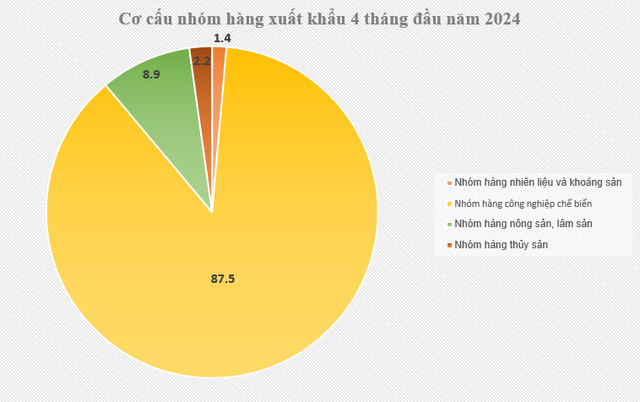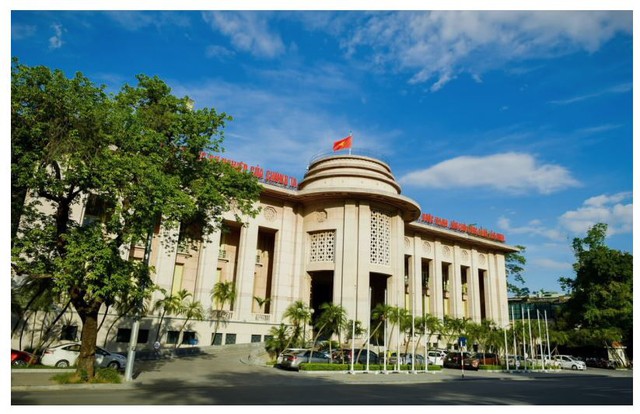Why prioritize road logistics?
According to Mr. Dang Phuc Nguyen, Secretary General of the Vietnam Fruits and Vegetables Association, we have advantages to develop road logistics when the transportation system is well-connected to the large border markets of China. This is a strength that many other countries do not have. If the internal and local transportation routes are seamlessly connected to the North-South expressways, the transportation time for goods, agricultural products, fruits, and vegetables from the South to the Northern border will be reduced to just over 1 day, compared to 2 days before. The loss in the transportation of agricultural products and fruits and vegetables will significantly decrease from 30-40% to 10-15%. Compared to Thailand, with this figure, Vietnam’s agricultural products will have an advantage in exporting to the populous market. Many businesses still choose to export to the Chinese market by road instead of rail, waterway, and air transportation, which are difficult and expensive.
“Transporting goods by sea will also take the same time as Thailand, at least 10-12 days. Therefore, the advantage of road transportation is rare. To access the Chinese market and further develop our road logistics, we need many cold logistics centers or container yards to address high-demand periods and be prepared for situations where we need to wait… Although these situations are not frequent, they still occur,” said Mr. Dang Phuc Nguyen.
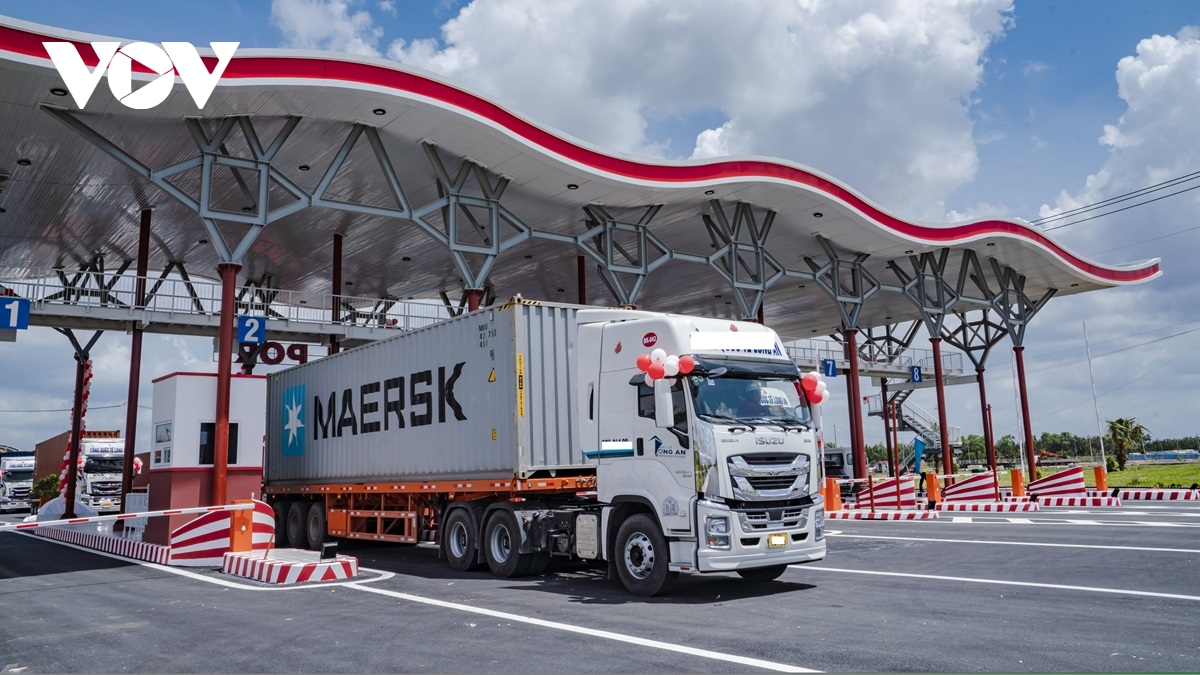
Developing road logistics contributes significantly to the economy, solving urgent issues (Photo: Quang Anh)
The formation of logistics centers is necessary not only for road transportation but also for other types of logistics. The issue of attracting investment is currently in an open regime, depending on the planning of each locality. There are many similar models with different scales and standards that can be considered as logistics centers, and they are managed and licensed by different ministries and agencies, such as inland container depots (IDC) which require separate planning and licensing.
Mr. Nguyen Hoai Trung, CEO of Fata International Logistics Exchange, believes that it is necessary to clarify the role of advisory and management agencies, as well as relevant localities and ministries, in the business licensing and operation. In the development strategy, the objectives and practicality need to be clear, and the number of logistics centers needs to be specific. This will help businesses confidently invest in the future.
“Instead of developing general logistics services, we need to break them down into specific services. How to develop road transport targets should be assessed by businesses themselves based on their capacity and the state’s development plan to make appropriate investments,” said Mr. Nguyen Hoai Trung.
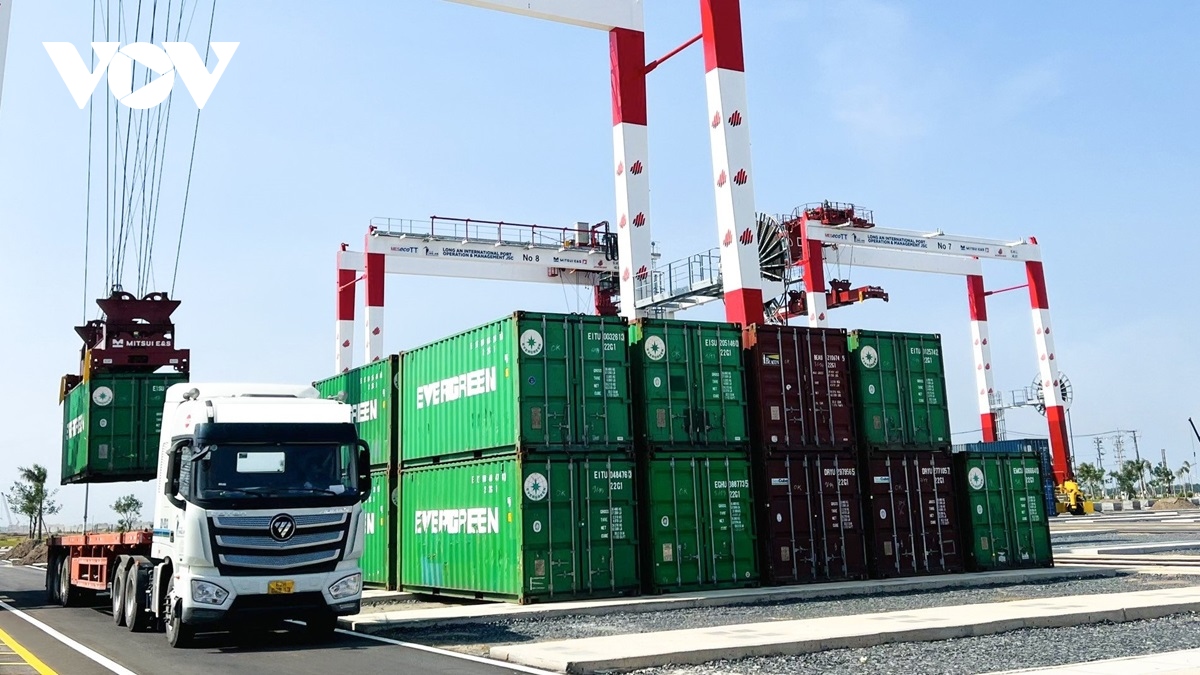
The formation of logistics centers is necessary not only for road transportation but also for other types of logistics (Photo: Quang Anh)
According to Assoc. Prof. Dr. Ho Thi Thu Hoa, Vice Chairman of the Vietnam Logistics Development Association, while resources are limited, we have many solutions to choose from, so implementation will be challenging.
“Among dozens of solutions, what is the roadmap? There are solutions that we can implement by 2030 and see their impact. There are solutions that we cannot implement now but can be implemented by 2040, for example, so the roadmap for implementing solutions needs to be established. Localities and ministries are also confused about which solution to implement first and which one to implement later. Therefore, the level of priority areas and objectives needs to be clarified to ensure full and non-overloaded resource allocation,” Assoc. Prof. Dr. Ho Thi Thu Hoa raised concerns.
The game without a conductor
Although the logistics costs in Vietnam are still relatively high compared to developed countries in the world, the logistics services sector has made significant contributions in recent years. The target for 2030 is for the logistics services sector to contribute 6-8% to GDP, the proportion of outsourced logistics services to reach 60-70%, and logistics costs to decrease by about 16-18% of GDP…
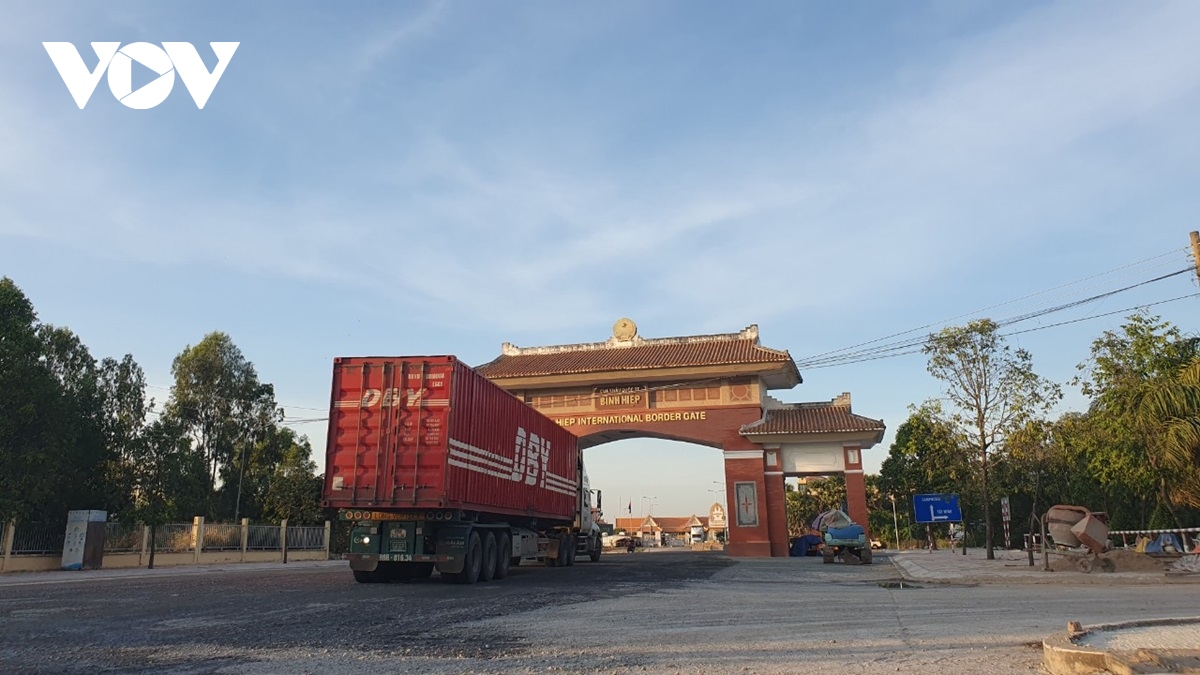
Many businesses still choose to export by road instead of rail, waterway, and air transportation (Photo: Quang Anh)
Mr. Pham Quoc Long, Vice Chairman of the Vietnam Ship-owners’ Association, believes that to achieve this goal, it is necessary to prioritize development in specific areas, which requires careful consideration. The core issue of developing logistics strategies is still lacking a leading agency: “Infrastructure and land are in the hands of provinces, while the Ministry of Industry and Trade is on par with the Ministry of Transport and the Ministry of Finance, and it cannot make adjustments. Every issue requires coordination, but with everyone at the same level, no agreement can be reached, regardless of the strategy,” Mr. Pham Quoc Long emphasized.
Adding to the discussion on this issue, Mr. Le Duy Hiep, Chairman of the Vietnam Logistics Service Business Association, said that the association has recently played an important role in enhancing the position of the Vietnamese logistics community internationally, connecting with domestic and foreign businesses. In terms of regional linkage, according to Mr. Hiep, it is necessary to clearly identify in development policies, especially in terms of sustainability. Regional linkage policies need to respect and exploit the potential and comparative advantages of each locality; resolve conflicts of interest and focus on the common goals of the region and the country. To do this, it is necessary to have different perspectives on logistics compared to previous years.
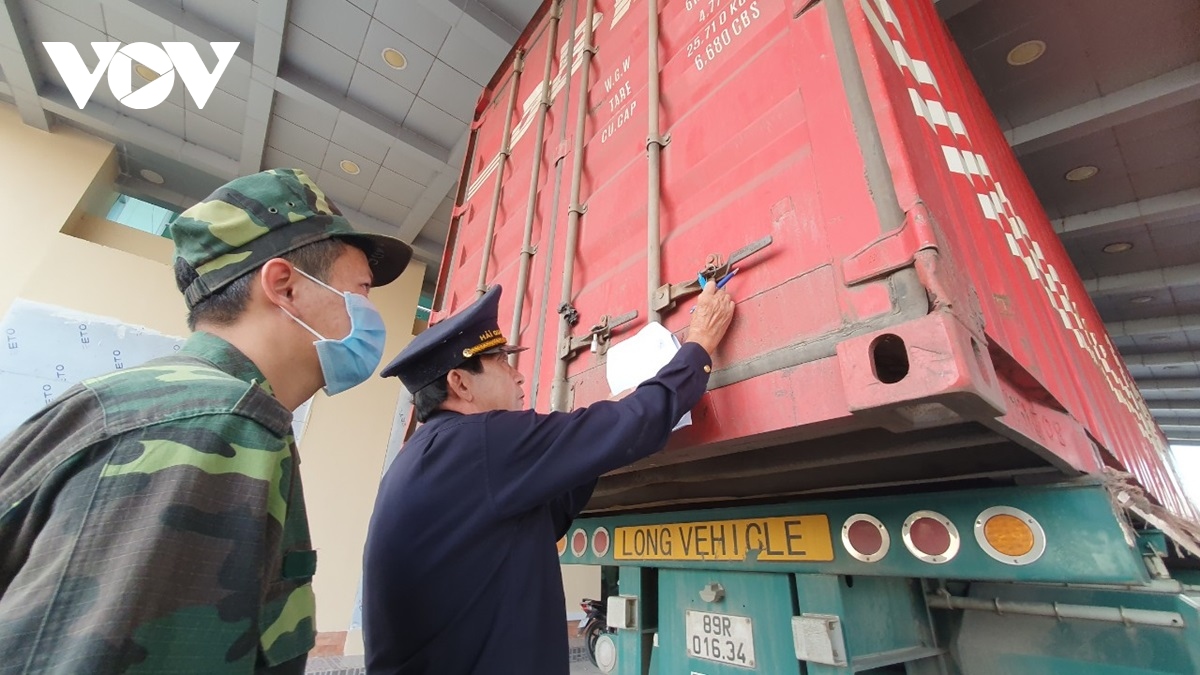
Vietnam has an advantage in developing road logistics due to the well-connected transportation system with the large border markets of China (Photo: Quang Anh)
“It is not necessary to wait until 2030 to establish a National Logistics Committee – a state management agency specialized in logistics activities, but we should do it as soon as possible. To coordinate between ministries and localities, as there are many issues such as taxes, customs, transportation…,” Mr. Le Duy Hiep emphasized.
Establishing a separate committee to promote and coordinate national logistics is a practical and appropriate need. However, in the context of current administrative reforms, proposing a new mechanism is very challenging. Therefore, businesses, localities, and related units need to demonstrate the urgency of logistics development for the economy to take advantage of the consensus.










